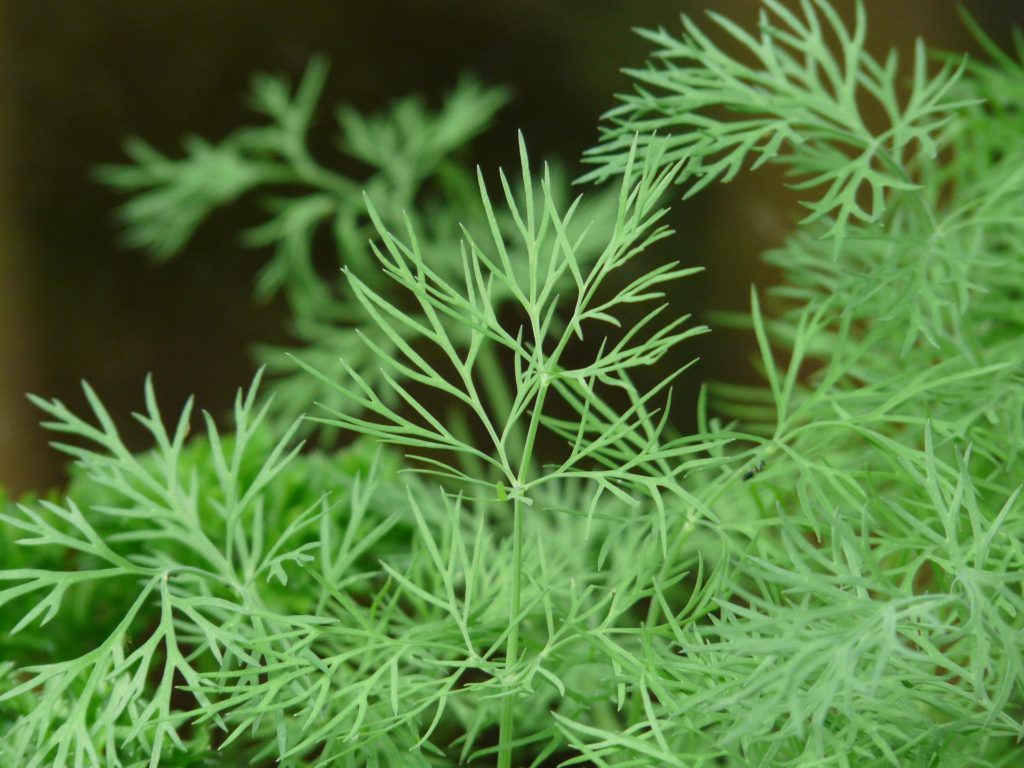Dill (Anthum graveolens) is a Mediterranean herb. It originates from Persia and eastern India, but is also cultivated in the southern part of Europe. The healing parts of the dill are the leaves and flowers that gather until the ripening of the plant, and the fruits that gather when the herb is matured.
Its medicinal properties originate thanks to the vitamins and minerals it contains, phytonutrients – monoterpenes (carvone, limonone, anethofuran) and flavonoids (Kempherol and vicenin).

Dill (Anthum graveolens)
Medicinal properties:
- It is recommended to use it in breastfeeding mothers because it stimulates lactation (secretion of milk from mammary glands)
- It is given to young children for calming and relieving cramps..
- An excellent remedy when consumed alone or with other related carminative plants (which improve digestion and reduce bloating) like fennel, cumin, in conditions such as meteorism, aerophagia, bloating, such as bowel, stomach, liver disease , kidneys and acids in the stomach (enough to chew a spoon of dill seed and swallow)
- Detoxifier that purifies the blood and strengthens the heart (taken as a spice or tea for cleansing the blood and body)
- As a tonic for the liver (in his weak work and jaundice)
- As a diaphoretic (stimulates sweating) and a diuretic (if it is consumed as warm tea, it causes more sweating and urination, its medicinal properties and effects are used for influenza and cold, and in various inflammatory conditions where it is necessary to increase the release of harmful substances from the body)
- The digestive action of the dill when used as a spice, and its goal is to stimulate the operation of the stomach and intestines.
The dill primarily improves taste, increases metabolism for better digestion, and improves appetite. It has a bit of bitterness, but fresh and sweet-aromatic taste. The aroma and flavor of the dill well agree with the Scandinavian dishes of fish and seafood, such as salmon, herring, crayfish, shrimp and mussels.
The dill agrees with freshwater fish such as carp, eel and trout, vegetarian dishes with spinach, cabbage, beets, beans and potatoes and rice. It is recommended to add to the spicy hot sauces that give them freshness.
When cooking cold dishes, it is often an integral part of acetic sauce, mayonnaise-based sauces or dressings like yogurt. It is also necessary to supplement marinating vegetables, especially cucumbers.
